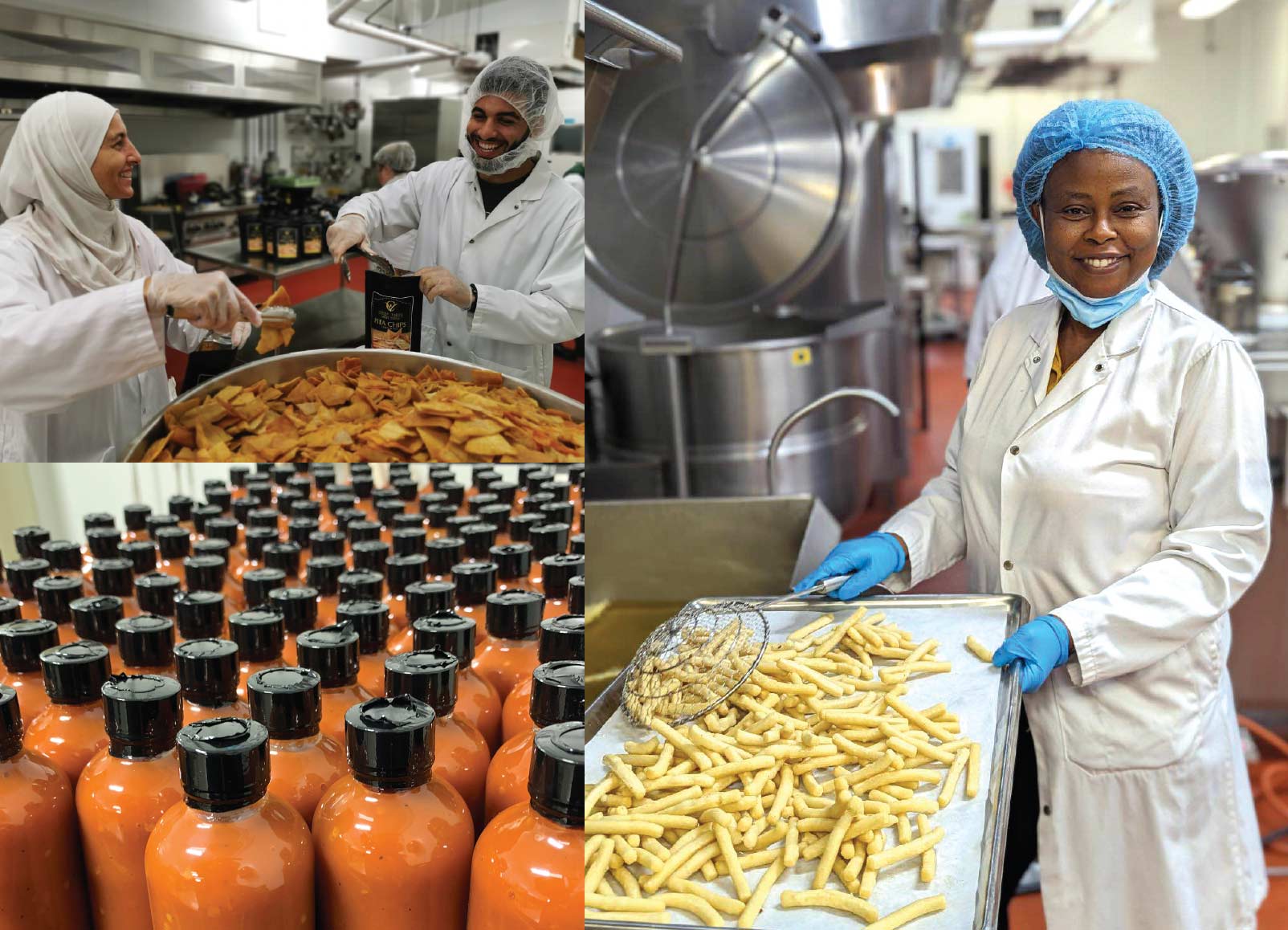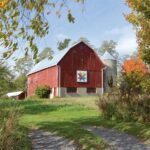
The name – Ontario Agri-Food Venture Centre (OAFVC) – is a mouthful, but this massive building turns out food that tempts the tastebuds.
At first you might think it’s a provincial body, but you’d be mistaken. In fact, the entire 22,000-square-foot facility on Purdy Road in Colborne, just off the 401 east of the Big Apple, is owned and operated by Northumberland County, which funds its $1.1 million annual budget.
Dan Borowec, who is Director of Strategic Initiatives at the county, says the Centre – now in its ninth year – was deliberately given a name that would encourage participants from a wide area.
OAFVC is one of a number of business-related services the county provides to help anyone who wants to start or grow a business. Borowec says it is part of a social-enterprise approach that builds on a community effort and looks to provide the tools needed for success. The early research indicated that about 80 percent of the clients of the agri-food processing centre would be local farmers, while 20 percent would be individuals looking to turn an idea, or family recipe, into a saleable product.
But in reality, those percentages are flipped: 20 percent of its clients each year are farmers, 80 percent others. “So much for research,” Borowec says with a laugh.
WHAT EXACTLY DOES OAFVC PRODUCE?
“Our focus is on consumer-packaged goods,” says Trissia Mellor, the Agri-Food Manager. “Our clients here are making products that you won’t eat today, but if it’s produced today you might eat it in three weeks – or three months.”
“It is exciting to be in a local rural community and to be creating food that is feeding the entire province.” TRISSIA MELLOR
The Centre offers a kitchen, processing rooms and packing areas, all available for rent, with or without staff to help out. They don’t handle meat products, but they can process dairy-based products in collaboration with the Dairy Farmers of Ontario.
“I think it is exciting to be in a local rural community and to be creating food that is feeding the entire province,” Mellor says.
Borowec says the processing centre was essentially built as a new facility, inside the outer frame. This was necessary to create the high level of hygiene required in a food-processing facility.
On a tour of the facility, Mellor details the meticulous cleaning procedures undertaken by the staff.
The Centre currently offers three rooms where different clients can work simultaneously. Positive air flow and closed doors ensure no interference between products. Unlike some large community kitchens, there is no risk that your yogurt product will wind up absorbing garlic smells from a nearby stove.
INGREDIENTS FOR SUCCESS
But the success of the Centre isn’t just due to its machinery or procedures, it’s grounded in knowledge and connections.
“Trissia has built relationships with staff at major food chains, and they now trust that any product coming out of the Ontario Venture Centre will be safe,” Borowec says.
Trissia Mellor says that a few years ago she received a worried call from Sobeys. “‘We have so many products that are coming from OAFVC that you’ve become a risk. Can we come and visit, because we want to understand who you are and how you operate, to make sure that we don’t have a bunch of products we need to worry about.’” Soon after they came for a tour and at the end said, “So, if we have a client that wants to grow and they don’t have any place to do it, but we want them in more stores, can we send them to you?”
The answer was “absolutely.”
Each year the Centre works with 70 to 80 clients who develop 150 to 200 new products. The average stay for a client is 18 months; it can take that long for them to fine-tune their product and determine an economically viable way to proceed in a competitive marketplace.
Mellor says some local farmers are at the other end of the time frame. Several have come in for one or two sessions, just enough to understand their equipment needs and to realize how they want to proceed.
“They are used to welding or making what they need, so often they just get the idea and don’t need to come back.”
DRAGONS’ DEN DEALS
One success story actually found OAFVC via Sobeys. In 2015, Ameen Fadel and his mother Surria were living in Windsor when he received a $3,000 grant to help produce his mother’s fattoush salad dressing. Soon after, Mellor met him at a Sobeys event for producers and they discussed the difficulty he was having finding a facility where he could make the dressing. That led to Fadel making the five-hour, 500-kilometre drive from Windsor to Colborne twice a week for nine months so they could work a shift and prepare their dressing.
The irony is that over time Fadel realized people were more interested in the pita crackers they were offering as a way to sample the dressings. Now, Cedar Valley Selections sells those crackers in stores across the country.
“I get mine at Giant Tiger,” Mellor says with a smile. “They are the best.”
To top it off, last year the company appeared on Dragons’ Den and made a $1 million deal with investor Arlene Dickinson.
Many OAFVC clients come through a “newcomers-to-Canada” program designed to help them start businesses here.
There are lots of local success stories too, such as Saucy Dotty’s, owned and operated by Dot Worobetz, who visited the Centre as leader of a group of Probus Club members from Brighton and learned how easy it was to get started.
Soon, she had turned a family recipe into a sales winner. She added more sauces and in 2020 opened a production facility in Brighton, where she now makes five different sauces that are available in dozens of stores. As it turns out, the smorgasbord of services that OAFVC dishes up are satisfying the appetites of both local farmers and entrepreneurs across Ontario.
Story by:
Art Chamberlain




